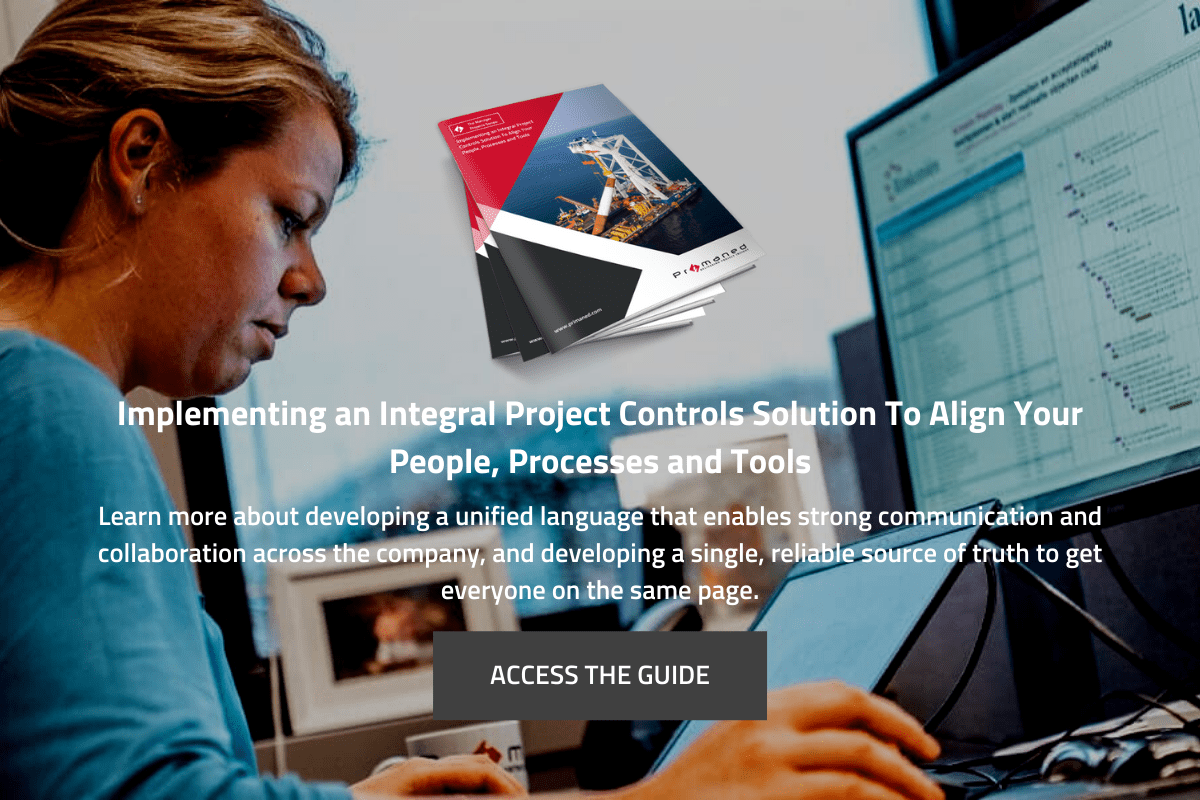How OPC Software Can Reduce Manual Project Involvement, Save Time, and Increase Project Success Delivery
By Paul Vogels on Dec 23, 2021 10:17:24 AM

How OPC Software Can Reduce Manual Project Involvement, Save Time, and Increase Project Success Delivery
While 38% of businesses are using legacy software for project planning and management, the majority circa 45% - are still using email or spreadsheets, according to Oracle’s ‘Modernizing Project Controls for the Digital Era’ report. The problem is that without a repeatable set of processes that OPC software brings, tools such as Excel can be used for remarkably complex calculations, but manual processes are heavily time-consuming and are rife with human error. In fact, it’s been reported that nearly 90% of all spreadsheets contain errors caused by human input.
It’s clear that the traditional planning process is too reliant on people, and on manual operations. And there are multiple risks to continuing to work using these older methods.
The Risks of Manual Project Involvement
There are many different ways that manual project involvement can reduce the chance of a successful project delivery. Some of the primary risks include:
Human Error
When thinking about project risk, many managers think about technical risks or commercial risks, failing to consider the role that the risk of human error in the application of planning principles can play. Human error can occur for many different reasons, such as a lack of understanding, reduced concentration, or simply an accidental press of the wrong button or key. Even a single error in a manual system can lower the accuracy of all project information.
Human Emotion
In addition to human error, it’s important to consider human emotion, too. Perhaps a member of your team is having a bad day and isn’t feeling particularly committed to the project or motivated to find solutions to problems. Perhaps the different objectives of different stakeholders working across the organisation have an impact on what data sets they choose to consider when making decisions, or how they interpret this data.

Human Judgement
The experience, knowledge, understanding, and general opinions of each planner can significantly affect the chance of project success. Processes based on opinion, for example, cannot be replicated by others, and so projects will progress differently depending on who’s making decisions. Another aspect to consider is that decision making is only as good as the individual’s own knowledge, creating inconsistencies. This is unhelpful in reducing project risk, and can actually create challenges and costs that wouldn’t otherwise exist.
Time
Manual project involvement can be hugely time consuming due to the need to enter - and re-enter data across systems. In fact, one report suggests that time to enter plan changes and performance data, receive, format, and input cost data from the finance department, run reports, and prepare for review meetings totals 24 hours with Excel, compared to just 2.5 hours with project control tools such as Oracle Primavera Cloud.

Information Quality
When different departments are all manually inputting their own data into their own systems, this data exists exclusively within silos, with no single source of truth and, subsequently, an increase in errors and poor decision making without access to the ‘big picture’. Stakeholders may be basing their actions on conflicting data, or wasting valuable time searching for the data they need across multiple legacy systems.
Risk Response
Manual project involvement results in slow risk identification. By the time risks are identified, they’re already at a potentially critical stage; they’ve made enough ‘noise’ to be heard. This is the point in which fixes should be applied, but instead, with manual processes, it’s the point at which teams begin searching for a solution. By the time solutions are ready to be implemented, small issues have become big problems.
Together, all of these risks of manual project involvement can directly reduce the chance of project success. It’s time to make manual involvement a thing of the past.

The Solution? OPC Software
According to the Project Management Institute, there are three primary causes of project failure: people (accounting for 32% of failures), processes (account for 42% of failures), and communications (accounting for 43% of failures). These are said to be the ‘three pillars of success’, so the ideal solution is one that addresses all three pillars.
Oracle Primavera Cloud does just that. Its automatic calculations and actions reduce human error. The comprehensive platform helps to create standardised cross-departmental processes, and its ability to exchange data with integrated systems such as Primavera P6 EPPM and other 3rd party software connected with Primavera Gateway ensures strong communications across all teams, all stakeholders, and all systems to create that elusive single source of truth.
Ultimately, what OPC software does is ensure that project processes are repeatable, that everyone has access to exactly the same data, at exactly the same time, and that - where possible - operations are automated to reduce the need for manual input. Together, these aspects all help to minimise delays and cost overruns, and increase the chance of a successful project delivery that will impress and satisfy your clients.
Subscribe by email
You May Also Like
These Related Stories

How Project Controls Reduce Project Risk & Costs, and Improve Your Project Planning to Help You Win More Tenders
How Project Controls Reduce Project Risk & Costs, and Improve Your Project Planning to Help You Win More Tenders According to a recent survey, 93% of projec …

The Head of Project Planning Series: People, Processes & Tools, How to Quickly Recruit, Systemise, and Train Project Planners
The Head of Project Planning Series: People, Processes & Tools: How to Quickly Recruit, Systemise, and Train Project Planners No matter what industry you op …

Project Control Examples: Why Savvy Heads of Planning are Elevating Project Controls into Their Project Team Training
Project Control Examples: Why Savvy Heads of Planning are Elevating Project Controls into Their Project Team Training Project controls may not be something you …

